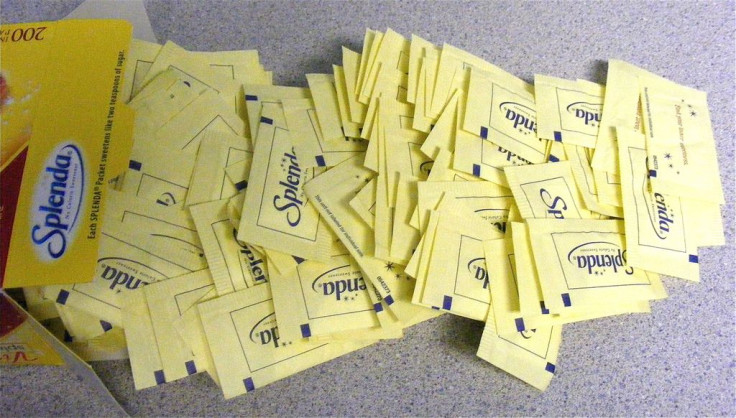If Splenda's Side Effects Include Leukemia, Its Safety Rating Will Plummet From 'Safe' To 'Caution'

Upon its inception, there was some nervousness regarding the use of Splenda sweetener. Other sweeteners proved to be dangerous for people's health, which is what sparked the development of Splenda. The sucralose-based sweetener was approved by the Food and Drug Administration (FDA) in 1998 for use in the United States. However, a new study has forced the Center for Science in The Public Interest to lower Splenda's ranking from "safe" to "caution".
A study at an independent Italian laboratory has indicated that when mice were fed with Splenda regularly, they developed leukemia. This evidence, on top of the long list of studies discouraging the use of Splenda, is a major reason the FDA has changed its safety rating.
A 2002 study showed that Splenda ingestion damaged the DNA of mice. DNA damage can be a cause of cancer in many cases. In a 2008 study, researchers reported that Splenda ingestion had the potential to kill off necessary bacteria in the gastrointestinal tract. Killing this bacteria can often lead to disorders like irritable bowel syndrome, as this bacteria often helps with digestion and fights off invaders. In this unpublished study, researchers found that the sucralose can cause leukemia in mice who are exposed before birth.
Center for Science in the Public Interest executive director Michael F. Jacobson has stated, "Sucralose may prove to be safer than saccharin, aspartame, and acesulfame potassium, but the forthcoming Italian study warrants careful scrutiny before we can be confident that the sweetener is safe for use in food."
If the findings are proven, Splenda will be considered a carcinogen, a substance or agent that cause cancer. Annually, the National Toxicology Program releases a Report on Carcinogens to inform the public about substances they may come into contact that could potentially cause cancer. Currently on the list are environmental tobacco smoke, lead, certain sexually transmitted infections, and some sweeteners still on the market, like saccharin-containing Sweet and Low.
Chemical Cuisine is a publication by the Center for Science in the Public interest, released to give people information about food additives, both chemical and natural. This publication is an admittance that chemicals are a major part of our diets — whether they are preservatives, sweeteners, or colorings. The publication also ranks each preservative's safety.
Despite concerns about sweeteners that could be potential carcinogens, the Center for Science in the Public interest says that those who drink sugar-sweetened drinks and eat sweetened foods are still at risk for other health issues like heart disease, diabetes, and obesity. To avoid the risks of both sugars and noncaloric sweeteners, the Center for Science in the Public interest urges people to switch to water, seltzer water or seltzer mixed with some fruit juice, and unsweetened iced tea.



























